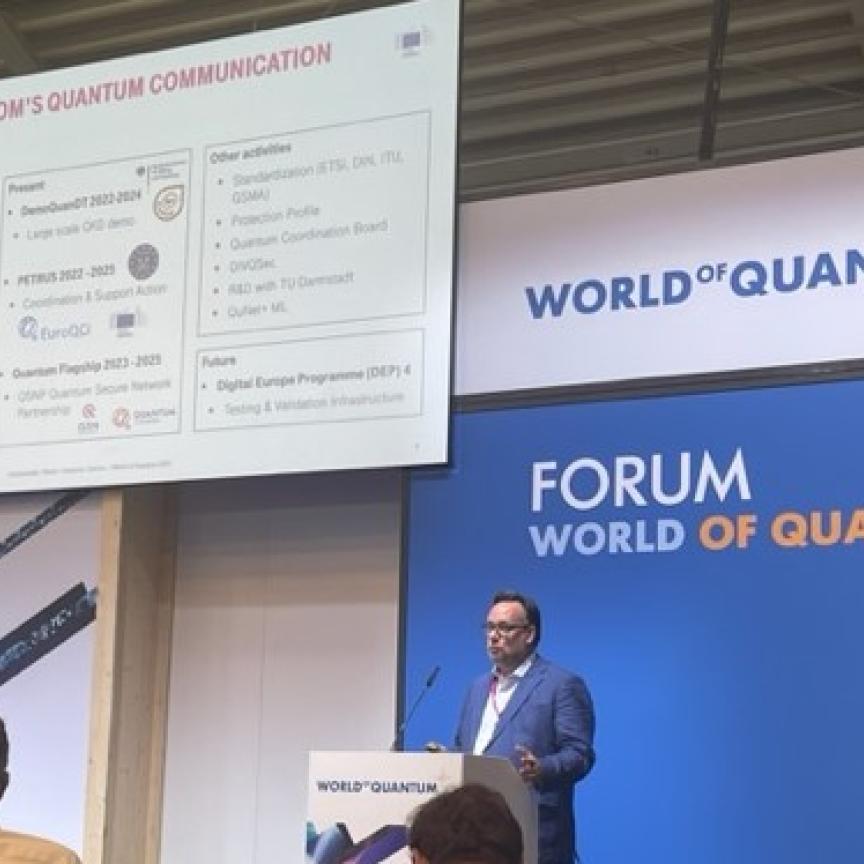NPL, Toshiba Research Europe, BT and ADVA Optical Networking, have successfully trialled quantum key distribution (QKD) technology over a live 'lit' fibre network.
The organisations say the trial paves the way for more advanced research into QKD, which they describe as 'the next frontier of data encryption technology, which will deliver even greater levels of network security'.
Providing an additional layer of security over and above standard methods used by banks and credit card companies to send data encryption 'keys' across a network, QKD shares a key between two users that is made secure using quantum mechanics.
By transmitting the information in a quantum state, any attempt to intercept the key can be identified, as it introduces anomalies which can be detected. If this occurs, the 'transaction' can be aborted, and a new key sent automatically. By sending multiple quantum keys every second, the security of a fibre line can be constantly monitored and attempts to 'tap' the signal can be instantly identified.
The trial, which is supported by the UK's innovation agency, the Technology Strategy Board, is the first to use a single 'lit' fibre, i.e. fibre to transmit data and the quantum key itself. The use of a single fibre is significant, as both the quantum 'key' and the encrypted data can now use the same pathway for the first time. Previously, two or three fibres were needed to deliver a secure connection.
Alastair Sinclair from NPL, said: 'The QKD system works by sending single particles of light, known as photons, in pulses across the optical fibre. Knowing the number of photons sent and received is integral to the security of the system.
'At NPL, we've developed a series of measurements that are sensitive enough to detect the individual particles of light, which we are using to independently verify the security of the system, in order to improve customer confidence and overcome one of the major barriers to market.'

